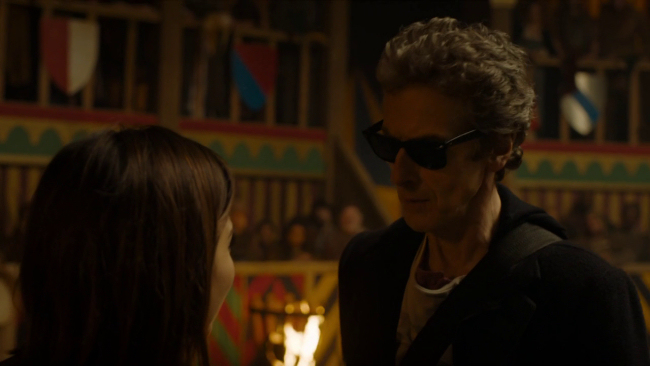
So why do vampires need to be invited in? Why are they put off by crucifixes? Such questions are at the heart of the dialogue in 2020's Dracula, a Netflix/BBC miniseries from Mark Gatiss and Steven Moffat. I've only caught the first episode so far but I've found it enjoyable but not brilliant. With Sherlock and Doctor Who, Steven Moffat took fan speculations, nitpicks, and decades of critical analyses to generate new versions of the classic characters, turning analyses into genuine people. A similar attempt is made in Dracula but so far the result is more of a video illustrated deconstruction than the same kind of organic endeavour as Moffat's previous forays.
But there's already been deconstructionist takes on Dracula--how couldn't there be? Bram Stoker's novel is one of the most adapted works of fiction of all time. There was Andy Warhol's Blood for Dracula which broke down the implications of class stratification with an amusingly wimpy, aristocratic performance by an adorable Udo Kier. There was Guy Maddin's Dracula: Pages from a Virgin's Diary, an insufferable slog through the shallowest, academic perspectives on the book as reinforcing patriarchal and colonialist privilage. One of the most refreshing things about Gatiss and Moffat's version is that, though it references English presumptions in foreign lands and culturally supported sexism, it also makes a point to show that Jonathan Harker (John Heffernan) is compelled to risk his own life as a matter of course when someone requests his aid. This is a show that's aware of the fact that part of the Christian cultural heritage is a basic sense of human decency. The conflict between the good and bad qualities of the religion forms the internal conflict of Agatha Van Helsing (Dolly Wells).

A female version of Van Helsing has been done (there's a USA series which, for all I know, may still be airing new episodes). But this one is also Sister Agatha, another character from the book, so she's not simply gender swapped, she's a combination, one that works well enough to serve as an intriguing streamlining of the story. Her crisis of faith is something entirely new, though, as neither Sister Agatha nor Abraham Van Helsing seemed to have any trouble believing in God.

Mostly the show has the quality of an intellectual discourse, exemplified when, in their first showdown, Agatha and Dracula (Claes Bang) argue about why vampires require invitations. The show brings very little new to the table in terms of atmosphere and effects, much of which is cribbed a bit from Hammer and a lot from Francis Ford Coppola. Claes Bang comes off a bit like Christopher Lee's Dracula crossed with Cary Grant in Suspicion but with the faster speech of a typical Steven Moffat character. There's nothing Vlad the Impaler-ish so far, he doesn't even have the "We Szekelys have a right to be proud" speech, Dracula's longest monologue in the novel. This is a show much more about discussing the vampire in modern fiction in a breezy manner and, while it doesn't inspire much shock or awe, it is kind of fun.
Dracula (2020) is available on Netflix.













